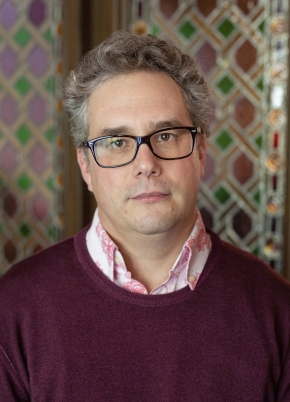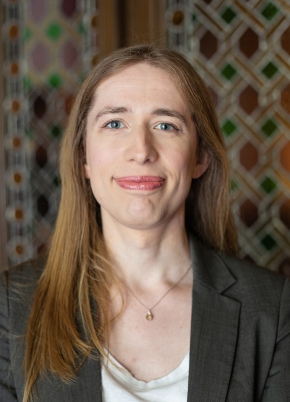Exploring the Profoundest Problem in Ethics: Insights from a Year at CAS
Over the past year, CAS has hosted Professor Attila Tanyi and Senior Lecturer Mathea Slåttholm Sagdahl, along with their team of researchers, for the project "The Profoundest Problem in Ethics" (PROFOUND). This ambitious project delved into the intricate conflicts between moral and prudential reasons, a theme that challenges conventional approaches in philosophical research.

Investigating Moral and Prudential Conflicts
Attila outlined the project's core focus, explaining, "Our project is centered on investigating the conflict in morality and prudence. For example, why should someone donate money to charity instead of spending it on a holiday?" This question underscores the broader investigation into how these conflicts are typically resolved. The standard view, as Attila described, "is that these conflicts can be resolved by comparing alternatives in terms of the reasons supporting them, attaching weight to these reasons, and then arriving at a determinate conclusion based on weighing them."
However, PROFOUND aimed to challenge this conventional position. The team examined whether these reasons are truly comparable and if a unique, definite conclusion can indeed be drawn. "Are these assumptions true? Can they be defended? Some, such as our fellows Caj Strandberg and Joshua Gert, argue that there isn't a clear conclusion, suggesting multiple defensible conclusions might exist," Attila noted. “Yet others, including Mathea my project co-leader and David Copp, a fellow in our project, argue for the even more radical position that comparability is not in fact possible”, he added.

Achievements and Surprising Outcomes
Reflecting on their achievements, Attila emphasized that philosophical projects don't always yield discoveries in the traditional sense. However, significant outcomes were reached during their year at CAS. "Mathea published a book on normative pluralism before the project started, which garnered much attention and formed the basis of our first workshop. She's now working on extending this work," Attila said.
"Those who were deeply skeptical about this idea of the standard view, are now defending their positions, which can be seen as a form of outcome of the project," he further explained. Several researchers have made strides in their respective areas, will be publishing and presenting papers that extend the project's foundational ideas. Attila himself branched out into decision theory and economics, explaining that what he is working on could possibly be a partial defense of the standard position, but that the research is complicated on more formal grounds.
Collaboration and new insight
The collaborative nature of the project played a crucial role in shaping its outcomes. Attila highlighted how decision-theoretical approaches, using methods like rational choice theory and game theory, were particularly fruitful for his own approach to the project. "While their use in philosophy isn't surprising, their fruitfulness in our project has been a notable outcome," he remarked.
A particularly intriguing aspect, according to Attila, was the heavily skeptical position proposed by for example Mathea, suggesting that different normative domains, or areas of life as you may say, exist in isolation and there is no way to adjudicate among them. If they come into conflict, no standard resolution is a possibility. "This position, despite its apparent radicality, has proven at least prima facie defensible, which I find fascinating and surprising, because we have to make decisions about these types of conflicts. So how is this practically applicable?" Attila observed. “Mathea and David have their own intriguing and creative answers to this challenge, from which I have personally learned a lot”.

The CAS Environment, Future Directions and Continuing Impact
The ability to bring people together, offer accommodations, and organize workshops has been crucial for the project. As Attila put it, "CAS has been ideal for us. Unlike projects that require labs or field visits, we only needed a space to come together and interact,”. The funding and structure at CAS facilitated meaningful discussions and interactions, crucial for philosophical research.
During their stay, the team organized a series of workshops, attracting guests and participants from different fields and positions within philosophy and ethics. These interactions are now culminating in an anthology, showcasing the breadth of insights gained. "This collaborative environment has been perfect for our project's needs," Attila added.
As the project nears its conclusion, Attila and his team are already planning the next steps. They have a proposal with Oxford University Press for an anthology tentatively titled "Practical Conflicts," which will broaden the scope of their work. Additionally, they've submitted applications to continue exploring these themes, including extending their research to state-level conflicts regarding climate action.
"We have planned conferences and panels to continue the discussion," Attila said, emphasizing the ongoing nature of their inquiry. The flexibility of the project allows the team to pursue it as long as they find it interesting, and they will continue seeking funding despite the challenges in available funding for humanities.
Attila concluded by acknowledging the unique opportunity CAS provided. "CAS has given us a significant boost. The possibility of applying for an alumni grant would also offer a way to continue benefiting from this support," he noted, reflecting the project's continuation.